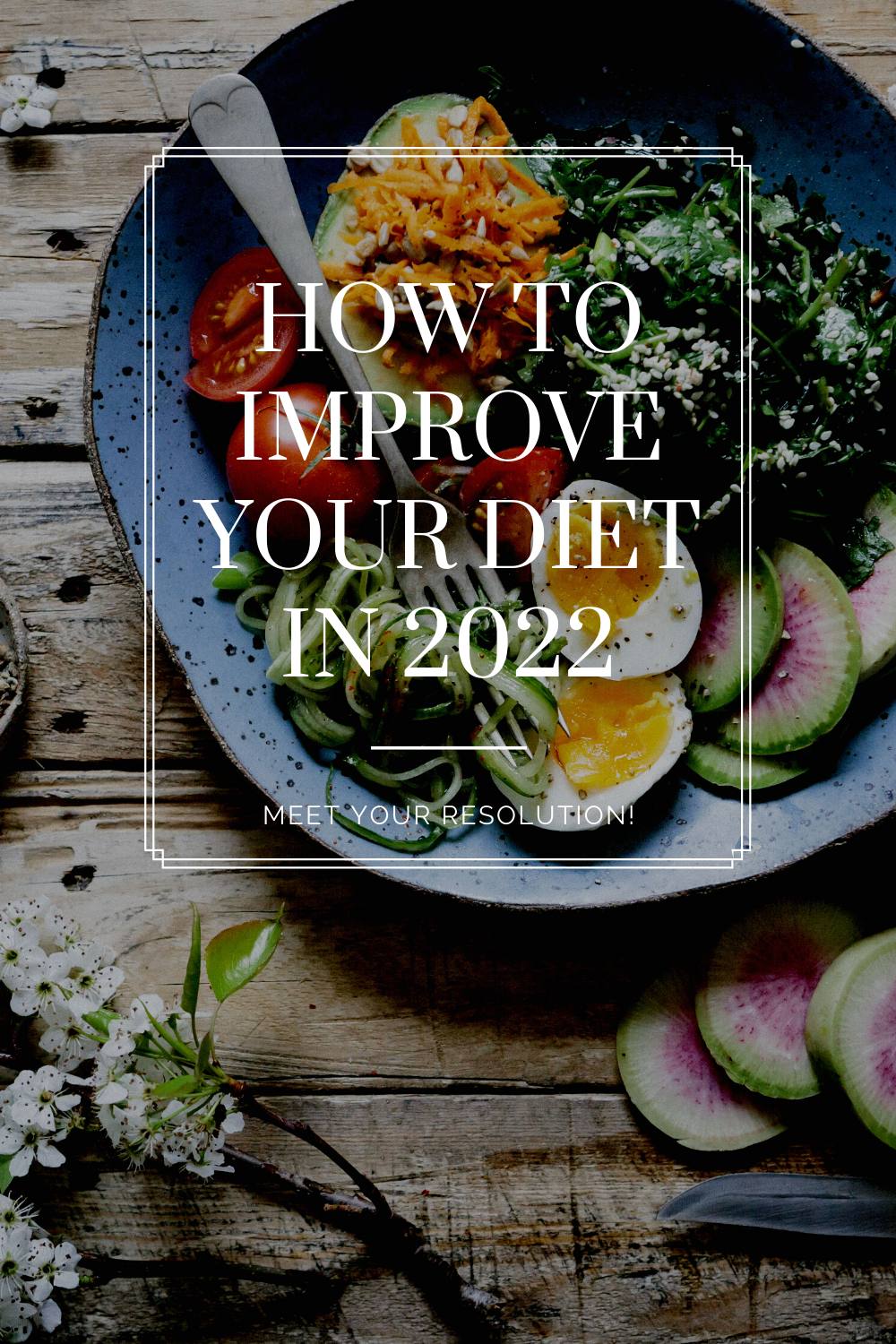
It’s the start of a new year and many of us are considering positive changes we can make in our lives. Of course, different approaches will suit different people, but if you feel you could improve your diet, it may make a huge improvement on your overall health and wellbeing. What we eat fuels our body and by putting good fuel in, we can reduce our chances of developing certain diseases, feel better energized and generally have a better day to day life. Here are a few different areas of your diet you could focus on.
Understand Calories
When considering your diet, a good area to start is calories. Calories are simply a unit of measurement, showing you how much energy you will gain by consuming different foods. The issue with calories is that many people develop unhealthy relationships with calories and deprive our bodies of the calories that we need in a bid to lose weight or be healthier. You shouldn’t push yourself into a calorie deficit unless you are overweight, obese and a doctor has recommended that you do. Even in this situation, you should make sure to get recommendations on how many calories you should be consuming to lose weight and for how long. When it comes to the average person, there are a few different recommendations for calorie consumption based on factors like your gender, age and activity levels. If you are unsure what will best suit you, you should consult a doctor or other medical professional who can let you know what to do. Below, you can find a general recommendation for different individuals:
- Children aged 2 to 8 – 1000 to 1400 calories
- Girls aged 9 to 13 – 1400 to 1600 calories
- Boys aged 9 to 13 – 1600 to 2000 calories
- Active women aged 14 to 30 – 2400 calories
- Sedentary women aged 14 to 30 – 1800 to 2000 calories
- Active men aged 14 to 30 – 2800 to 3200 calories
- Sedentary men aged 14 to 30 – 2000 to 2600 calories
- Active adults over 30 – 2000 to 3000 calories
- Sedentary adults over 30 – 1600 to 2400 calories

Photo by Trang Doan from Pexels
Cut Out Junk Food
Before we consider what should be on your plate for a healthy meal, let’s consider what shouldn’t be on your plate. Many of us are have bad habits and eat a lot of unhealthy food on a regular basis. It’s not too surprising to see why so many people do eat convenience foods and fast foods like takeaways, drive-thrus, ready to eat meals, and junk food snacks. They are convenient. They are easily accessible. And they can be low cost and fill your stomach on the go. You don’t have to clean up the kitchen afterwards. But it’s important to remember that you should avoid these foods regardless. Not only are junk foods nutritionally void, but they also tend to contain ingredients that are extremely bad for you. They tend to contain a lot of sugar, a lot of salt and saturated fats and don’t give you the energy you need for your day. It’s time to cut the junk foods out and leave them as an occasional backup.
Try Vegetarian or Vegan Meals
It’s January, which means many people are trying Veganuary. Have you heard of this? Chances are you’ve seen plenty of companies launching and advertising a whole host of new vegan friendly and plant based products. Put simply, Veganuary is a challenge that asks you to go vegetarian or vegan for the month of January. Now, there are countless lifestyle changes that you can make that help your diet, but having a diet with less meat and animal products in it is definitely an option. Vegetarianism is when you cut out products made from an animal’s body. This includes meat, fish, gelatin and more. When you go vegan, you remove all animal derived products from your lifestyle. This means that you no longer consume meat (including fish and seafood) or animal byproducts (eggs, dairy, honey and more). People do this for a number of reasons. Some people do it for animal rights. Some simply don’t like the thought of eating animal products. Others do it for the sake of the environment. But did you know many people do it for the sake of their health? Various studies have linked animal products to health concerns, such as obesity, heart issues and some meats are even classed as carcinogens. Of course, you don’t have to go all out. You can try out a plant based meal here and there, one day a week of vegetarianism or veganism, or flexitarianism. You might even find interesting new ingredients like how to prepare tofu or how to take turkey tail. It can help your body and your budget, especially with the rising cost of meat. Remember, your protein does not always need to come from meat.

Photo by Robin Stickel from Pexels
Consider Supplements
It can be difficult to get all of the nutrients your body needs on a consistent basis. But that doesn’t mean that you have to give up on providing your body with the nutrients it needs to thrive. If you find that you don’t get enough of a certain food, you may miss out on certain vitamins and minerals your body needs. This is common amongst people who follow restricted diets, such as people with allergies or vegetarians and vegans. Those who don’t eat animal products might find difficulty in getting enough protein or B12. Those who are lactose intolerant can face difficulties getting enough calcium. Of course, there are appropriate alternative sources of many vitamins and minerals. But you can also try supplements. These offer a convenient way to get some of what you’re missing into your diet.
There are also a variety of beneficial probiotics for women which help keep your gut in check. They can help aid your digestive tissues for your diet apart from helping balance vaginal pH and prevent infections. Studies have shown that a healthy gut microbiome can support good mental health. You can experience some mood boost when taking probiotics. This may all sound good, but before purchasing any supplement it’s vital you look at the reviews and ingredients for the product, just to know what you’ll be taking. Whether you’re looking for Bio Complete 3 reviews, or for another specific product, you can find the information you require online or by visiting your local health shop.
Plan Your Meals
Meal planning works wonders for providing your body with balanced, healthy meals. Know what you’re going to eat throughout the week. Then have the ingredients ready and available and meal prepping in advance. When time is short can all help you to keep on top of your healthy diet goals. There are plenty of meal planning and meal prep guides out there that can help with this!
Hopefully, some of the information highlighted above will suit you and will prove easy to incorporate into your day to day lifestyle. Each will help to make your day to day routine a whole lot easier.



